| John W. Jones Page2 | |
|
Photos/text courtesy of
Scott Payne, NY For any use of these photos contact Webmaster |
| John W. Jones Page2 | |
|
Photos/text courtesy of
Scott Payne, NY For any use of these photos contact Webmaster |
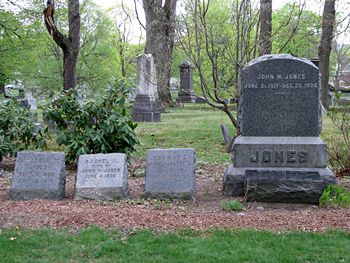 |
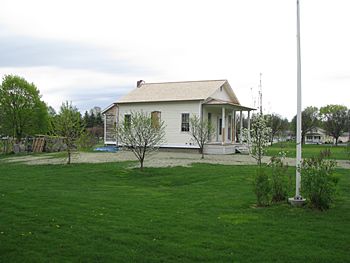 |
|
|
(2010)
Enlarge When the camp was closed, one
year later, on July 10, 1865, almost 3,000 Confederate soldiers had died.
With compassion John W. Jones supervised their burial in an area back of
his farm. He kept accurate records of each soldier, by name, rank, company
and regiment, grave number and date of death. He placed a nicely
painted wooden marker on each grave. Washington accepted his records and
he was paid $2.50 for each burial |
(2010) Enlarge In 1998 this house at 1259 College Avenue in Elmira in which John W. Jones had lived had been condemned by the City of Elmira and was threatened with demolition. A group of concerned people resolved that they would not let the historic house be torn down and would restore it as a museum to commemorate the activity of the Underground Railroad in the Southern Tier of New York State, including the abolitionists who helped the runaways and particularly the life, good work, and kind manner of John W. Jones, and also the history of African-Americans who settled in the Southern Tier because of the UGRR |
|
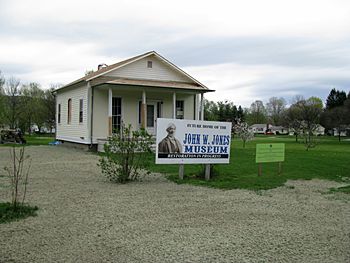 |
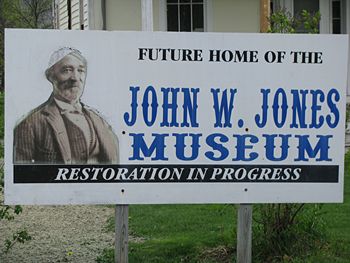 |
|
|
(2010)
Enlarge The house has been moved to a
city park about one half block away on Davis Street, still on the farm
that Mr. Jones had owned and still close to Woodlawn Cemetery where he had
been in charge of burying 2973 Confederate soldiers who had died in the
Elmira Prison Camp |
(2010) The museum will highlight the history of African Americans who settled in the Southern Tier of New York and the activity of local abolitionists. The museum will emphasize ElmiraÆs role as the only regular agency and published station on the Underground Railroad between Philadelphia and St. Catherine, Canada, and explore Mr. JonesÆ community involvement and his relationship with his contemporaries |
|
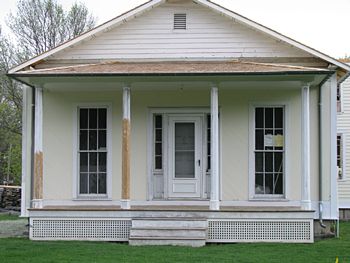 |
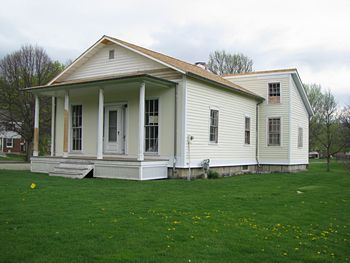 |
|
|
(2010) Enlarge The John W. Jones Museum will be operated and maintained by the John W. Jones Board of Trustees with support from the community, student volunteers and partnerships with area businesses and service organizations. Paid staff will be hired at a later date |
(2010) Enlarge The museum will contribute to the revitalization of Elmira, New York, facilitate tourism efforts and promote stewardship by increasing public awareness and pride. It will be a significant historic resource for scholars, students and tourists, and an important cultural destination for the public |
John W. Jones Page1 Page2 Page3 Next
Sites by State Home Site Index